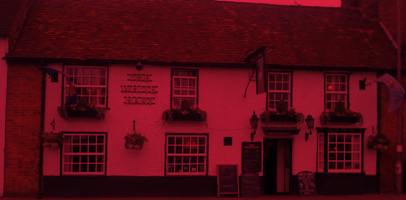Mark Brown, Freeths’ expert in challenging nominations of pubs as assets of community value, gives his views on the damage being done to the livelihood of healthy outlets.
“ACVs are, without any exaggeration, one of the major causes of pub closure” was the reaction of the managing director of a family brewer and pub company, on the effects of the Localism Bill.
This is of course the very opposite of what was intended by the legislation, which was expected to protect assets which were of real value to the local community. However, like much Government interference affecting the licensed trade, it raises unforeseen consequences. Just as the Beer Orders were supposed to widen beer selection in pubs, the legislation only spawned property owning pub companies instead of brewery ownership, which further restricted beer choice for commercial reasons.
In the same way, nominating the local pub as an asset of community value, thus preventing it from being developed or the use being changed, ironically can further increase the ultimate risk of closure. These scenarios will be familiar to many operators:
- In the freehold sale of a site in Sussex, the pub was saved because the date of sale preceded the ACV by just one day, meaning the decline in its value hadn’t compromised the sale. There was never a question of change of use. It is now a very thriving gastro pub, but it would have been closed had the ACV been registered sooner.
- A pub was rescued when a pub company bought the freehold, following a disastrous period under community consortium ownership. This involved a very lengthy experience to re-establish it, which the company says they would not try to repeat today.
A common opening questions today when it comes to buying a pub freehold is “Is it free of an ACV?” If the answer is “No” then discussion over the possible purchase is likely to come rapidly to a halt. No serious pub buyer is going to wait months for a moratorium to consider a local bid, which 9 times out of 10 is not forthcoming.
There are dozens of examples of pubs that have not acquired by family brewers and pub operators because of an ACV status. The consequence of a delay in sale (due to uncertainty) is an increasingly depressed pub due to an increasingly depressed operator/freeholder. The ongoing value will also be suppressed, and the future liability of a marginal pub that risks being run at a loss or boarded up.
An operator comments on how remarkable is the frequency at which he has been contacted by genuine pub patrons offering the opportunity to acquire their local pub, enthusiastically citing the fact that: “You will be pleased to know that it has been registered as an ACV” – as if this demonstrates the amount of local customer interest (when in fact it illustrates the opposite).
People in the community rarely understand the issues. Most tend to think registering an ACV is like endorsing a council amenity; “of course we want our pub to remain, even though we don’t use it, just as we want our bins to be emptied”.
A director of a national pub company is of the view that:
“ACVs are being used as a brute tool to obstruct otherwise genuine and acceptable redevelopment, particularly when the units in question are not economically viable. I have personally interacted with over a dozen communities in the past six months (including local community groups and Parish Councils), where the sole aim was to obstruct development rather than retain a community facility for the benefit of the local community. In each case the local community did not bother submitting their intention to bid nor did they engage in exploring the potential for raising funds to finance a potential community led acquisition.”
More examples include some very distressing stories from free trade customers of family brewers, describing slow death by ACV. A rundown pub 20 years ago, with no customers, was bought by the current owner who spent years and no small investment building up the business to become an award winning CAMRA pub for his retirement. Then came an ACV nomination. Now there is no community bid and no question of a change of use.
Sadly the routine death throes process goes as follows:
- A successful pub – which could be sold to an enthusiastic pub operator – sees an ACV granted.
- The ACV listing drives away the operator buyers who will not wait to invest.
- This in turn undermines the opportunity for freehold sale and the pub’s future.
- A lack of operator interest brings about a slump in quality, which leads to fewer customers.
- As the value of the pub declines, so does operator interest in the venture – leading ultimately to insolvency.
- As a result the pub is boarded up.
- Years may pass, during which time pub customers are potentially obliged to drink uncontrolled at home.
- Finally, a development site is the only option for the local authority and planning change of use is granted.
How has a listing of the pub as a community asset helped in this scenario?
Contact Mark Brown


